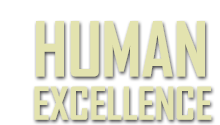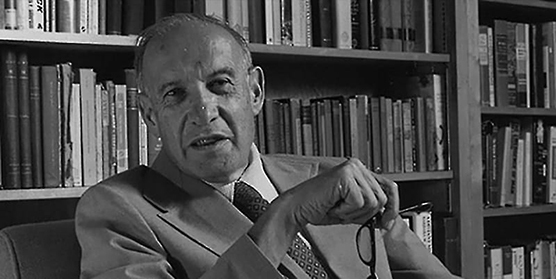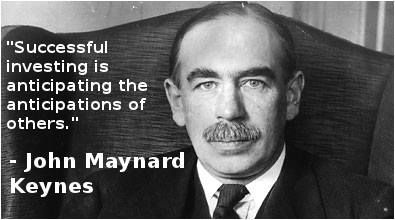 Source: www.amazon.com. Access date: January 13, 2024.
Source: www.amazon.com. Access date: January 13, 2024.
Everything else can be outsourced.
1.
Increasingly, in the Next Society's corporation, top management will, in fact, be the company. This top management's responsibilities will cover the entire organization's direction, planning, strategy, values, and principles; its structure and relationships between its various members; its alliances, partnerships, and joint ventures; and its research, design, and innovation.
Establishing a new corporate persona calls for a change in the corporation's values. And that may well be the most important task for top management. In the half century after the Second World War, the Business corporation has brilliantly proven itself as an economic organization, as a creator of wealth and jobs. In the Next Society, the biggest challenge for the large company, and especially for the multinational, may be its social legitimacy - its values, its mission, its vision. Everything else can be outsourced.
ACTION POINT: Focus on your organization's values, mission, and vision, and consider outsourcing everything else.
Managing in the Next Society
The Next Society (Corpedia Online Program)
1.
2.
Management as the Alternative to Tyranny
The alternative to autonomous institutions that function and perform is not freedom. It is totalitarian tyranny.
1.
If the institutions of our pluralist society of institutions do not perform in responsible autonomy, we will not have individualism and a society in which there is a chance for people to fulfill themselves. We will, instead, impose on ourselves complete regimentation in which no one will be allowed autonomy. We will have Stalinism rather than participatory democracy, let alone the joyful spontaneity of doing one's own thing. Tyranny is the only alternative to strong, performing, autonomous institutions.
Tyranny substitutes one absolute boss for the pluralism of competing institutions. It substitutes terror for responsibility. It does indeed do away with the institutions, but only by submerging all of them in the one all-embracing bureaucracy of the apparat. It does produce goods and services, though only fitfully, wastefully, at a low level, and an enormous cost in suffering, humiliation, and frustration. To make our institutions perform responsibly, autonomously, and on a high level of achievement is thus the only safeguard of freedom, and on a high level of achievement is thus the only safeguard of freedom and dignity in the pluralist society of institutions. Performing, responsible management is the alternative to tyranny and our only protection against it.
ACTION POINT: What steps can you and others take now to improve the performance of the institution for which you are responsible?
Management: Tasks, Responsibilities, Practices
1.
2.
Management and Theology
Management always deals with the nature of man,
and with Good and Evil.
1.
Management always lives, works, and practices in and for an institution, which is a human community held together by a bond: the work bond. And precisely because the object of management is a human community held together by the work bond for a common purpose, management always deals with the nature of Man and (as all of us with any practical experience have learned) with Good and Evil, as well. I have learned more theology as a practicing management consultant than when I taught religion.
ACTION POINT: Do you have any colleagues who are truly evil? Is there anything you can do about it?
"Teaching the Work of Management," New Management
1.
2
Practice Comes First
Decision makers need to factor into their present decisions the
"future that has already happened."
1.
Decision makers - in government, in the universities, in business, in the labor unions, in churches - need to factor into their present decisions the future that has already happened. For this, they need to know what events have already occurred that do not fit into their present-day assumptions, and thereby create new realities.
Intellectuals and scholars tend to believe that ideas come first, which then lead to new political, social, economic, psychological realities. This does happen, but it is the exception. As a rule, theory does not precede practice. Its role is to structure and codify already proven practice. Its role is to convert the isolated and "atypical" from exception to "rule" and "system," and therefore into something that can be learned and taught and, above all, into something that can be generally applied.
ACTION POINT: Are the premises that you base your decisions on obsolete? Do you need a new intellectual framework to win in the market as it exists today?
The New Realities
1.
2.
Management and the Liberal Arts
Management is a liberal art.
1.
Management is what tradition used to call a liberal art - "liberal" because it deals with the fundamentals knowledge, self-kmowledge, wisdom, and leadership; "art" because it deals with practice and application. Managers draw upon all of the knowledges and insights of the humanities and social sciences - on psychology and philosophy, on economics and history, on the physical sciences and ethics. But they have to focus this knowledge on effectiveness and results - on healing a sick patient, teaching a student, building a bridge, designing and selling a "user-friendly" software program.
ACTION POINT: What is your plan to develop yourself in the humanities and social sciences? Develop such a plan today.
The New Realities
1.1.
2.
The Management Attitude
The demands for a "managerial attitude" on the part of even the lowliest worker is an innovation.
1.
No part of the productive resources of industry operates at a lower efficiency than the human resources. The few enterprises that have been able to tap this unused reservoir of human ability and attitude have achieved spectacular increases in productivity and output. In the better use of human resources lies the major opportunity for increasing productivity in the great majority of enterprises - so that the management of people should be the first and foremost concern of operating managements, rather than the management of things and techniques, on which attention has been focused so far.
We also know what makes for the efficiency and productivity of the human resources of production. It is not primarily skill or pay; it is, first and foremost, an attitude - the one we call the "managerial attitude." By this, we mean an attitude that makes the individual see his job, his work, and his product the way a manager sees them, that is, in relation to the group and the product as a whole.
ACTION POINT: What actions can you take now to impart a sense of managerial responsibility into your workforce?
The New Society
1.
2.
The Spirit of an Organization
"It's the abilities, not the disabilities, that count."
1.
Two saying sum up the "spirit of an organization." One is the insecription on Andrew Carnegie's tombstome:
Here lies a man
Who knew how to enlist
In his service
Better men than himself
The other is the slogan of the drive to find jobs for the physically handicapped: "It's the abilities, not the disabilities, that count." A good example was President Franklin D. Roosevelt's confidential adviser in World War II, Harry Hopkins. A dying, almost a dead man for whom every step was torment, he could work only a few hours every other day or so. This forced him to cut out everything but truly vital matters. He did not lose effectiveness thereby; on the contrary, he became as Churchill called him once, "Lord Heart of the Matter" and accomplished more than anyone else in dying Harry Hopkins to make his unique contribution.
ACTION POINT: Figure out what each of your employees' or colleagues' strengths are and develop these strengths to help people perform better.
The Practice of Management
The Effective Executive
1.
2.
The Function of Management Is to Produce Results
"Above all, management is responsible for producing results."
1.
Management has to give direction to the institution it manages. It has to think through the institution's mission, has to set its objectives, and has to organize resources for the results the institution ha sto contribute. Management is, indeed. J.B. Say's "entrepreneur" and responsible for directing vision and resources toward greatest results and contributions.
In performing these essential functions, management everywhere faces the same problems. It has to organize work for productivity; it has to lead the worker toward productivity and achievement. It is responsible for the social impact of its enterprise. Above all, it is responsible for producing the results - whether economic performance, student learning, or patient care - for the sake of which each institution exists.
ACTION POINT: Is your organization delivering the results it should? If not, articulate your mission.
Management: Tasks, Responsibilities, Practices.

1.
Management: The Central Social Function
"Noneconomic institutions need a yardstick that does for them what profitability does for business."
1.
Nonbusiness institutions flock in increasing numbers to business management to learn from it how to manage themselves. The hospital, the armed service, the Catholic diocese, the civil service - all want to go to school for business management.
This does not mean that business management can be transferred to other, nonbusiness institutions. On the contary, the first thing these institutions have to learn from business management is that management is that management begins with the setting of objectives and that, therefore, noneconomic institutions, such as a university or a hospital, will also need very different management from that of a business. But these institutions are right in seeing business management as the prototype. Business, far from being exceptional, is simply the first of the species and the one we have studied the most intensively. Noneconomic institutions need a yardstick that does for them what profitability does for the business. "Profitability," in other words, rather than being the "exception" and distinct from "human" or "social" needs, emerges, in the pluralist society of organizations, as the prototype of the measurement needed by every institution in order to be managed and manageable.
ACTION POINT: What is the most important nonbusiness institution with which you are associated? Does it use a specific yardstick to assess performance? How successful is the organization?
The Ecological Vision.
1.
2.
Society of Performing Organizations
"By their fruits ye shall know them."
1.
Society in all developed countries has become a society of organizations in which most, if not all, social tasks are being done in and by an organization. Organizations do not exist for their own sake. They are means: each society's organ for the discharge of one social task. The organization's goal is a specific contribution to individual and society. The test of its performance, unlike that of a biological organism, therefore, always lies outside itself. This means that we must know what "performance" means for this or that institution.
Each institution will be the stronger the more clearly it defines its objectives. It will be more effective the more yardsticks and measurements there are against which its performance can be appraised. It will be more legitimate the more strictly it bases authority on justification by performance. "By their fruits ye shall know them" - this might well be the fundamental constitutional principle of the new pluralist society of institutions.
ACTION POINT: Are your performance yardsticks appropriate to your objectives?
Post-Capitalist Society
The Age of Discontinuity.
1.
2.
The Purpose of Society
"Society is only meaningful if its purpose and ideals make sense in terms of the individual's purposes and ideals."
1.
For the individual, there is no society unless he has social status and function. There must be a definite functional relationship between individual life and group life. For the individual without function and status, society is irrational, incalculable, and shapeless. The "rootless" individual, the outcast - for absence of social function and status casts a man from the society of his fellows - sees no society. He sees only demoniac forces, half sensible, half meaningless, half in light and half in darkness, but never predictable. They decide about his life and his livelihood without the possibility of interference on his part, indeed without the possibility of his understanding them. He is like a blindfolded man in a strange room playing a game of which he does not know the rules.
ACTION POINT: Make time to reach out to a "rootless" person who may be unemployed or retired. Drop them a note of support or take them out to lunch.
The Future of Industrial Man.
1.
2.
Nature of Man and Society
"Every organized society is built upon a concept of the nature of man and of his function and place in society."
1.
Whatever its truth as a picture of human nature, this concept always gives a true picture of the nature of the society, which recognizes and identifies itself with it. It symbolizes the fundamental tenets and beliefs of society by showing the sphere of human activity, which it regards as socially decisive and supreme. The concept of man as "economic animal" is the true symbol of societies of bourgeois capitalism and Marxist socialism, which see in the free exercise of man's economic activity the means toward the realization of their aims. Economic satisfactions alone appear socially important and relevant. Economic positions, economic privileges, and economic rights are those for which man works.
ACTION POINT: What is the socially supreme sphere in the U.S.? How does this affect you?
The End of Economic Man.
1.
2.
Profit's Function
"Today's profitable business will become tomorrow's white elephant."
1.
Joseph Schumpeter insisted that innovation is the very essence of economics and most certainly of a modern economy. Schumpeter's Theory of Economic Development makes profit fulfill an economic function. In the economy of change and innovation, a profit, in contrast to Karl Marx's theory, is not a "surplus value" stolen from the workers. On the contrary, it is the only source of jobs for workers and of labor income. The theory of economic development shows that no one except the innovator makes a genuine "profit"; and the innovator's profit is always quite short-lived.
But innovation, in Schumpeter's famous phrase, is also "creative destruction." It makes yesterday's capital equipment and capital investment obsolete. The more an economy progresses, the more capital formation it will therefore need. Thus, what the classical economist - or the accountant or the stock exchange - considers "profit" is a genuine cost, the cost of staying in business, the cost of a future in which nothing is predictable except that today's profitable business will become tomorrow's white elephant.
ACTION POINT: Ensure that you are investing enough in innovation to prepare for the day when your profitable business becomes obsolete.
The Ecological Vision.
1.
2.
Economics as a Social Dimension
"Keynes was interested in the behavior of commodities, while I was interested in the behavior of people."
1.
John Maynard Keynes (British Economist, June 5, 1883 - April 21, 1946), source: pinterest.com, access date: Aug.20, 2025.
1.
I do not accept the basic premise on which economics as a discipline is based, and without which it cannot be sustained. I do not assume that the economic sphere is an independent sphere, let alone that it is the dominant one. It is surely an important sphere. And as Bertolt Brecht said, "first comes the belly and then morality" - and filling the belly is what economics is all about in the main. I am not only willing but insist that in all political and social decisions, the economic costs are calculated and taken into account. To talk only of "benefits," I consider irresponsible and bound to lead to disaster. And I believe in free markets, having seen far too much of the alternative.
But still, for me, the economic sphere is one sphere rather than the sphere. Economic considerations are restraints rather than overriding determinants. Economic wants and economic satisfactions are essential but not absolute. Above all, economic activities, economic institutions, and economic rationality are means to non-economic (that is, human or social) ends rather than ends in themselves. And this means that I do not see economics as an autonomous "science." In short, it means that I am not an economist - something I have known since, in 1934, as a young economist in a London merchant bank, I sat in the John Maynard Keynes seminar in Cambridge. I suddenly realized Keynes was interested in the behavior of commodities, while I was interested in the behavior of people.
ACTION POINT: Before finalizing a significant budget or strategic decision, set aside half an hour to ensure you've thoroughly considered the impact on your organization's people and customers.
The Ecological Vision.
1.
2.
Private Virtue and the Commonweal
"In a moral society, the public good must always rest on private virtue."
1.
To make what is good for the country good for the enterprise requires hard work, great management skill, high standards of responsibility, and broad vision. It is a counsel of perfection. To carry it out completely would require the philosopher's stone that can translate the basest element into pure gold. But, if management is to remain a leading group, it must make this rule the lodestar of its conduct, must consciously strive to live up to it, and must actually do so with a fair degree of success. For in a good, moral, a lasting society, the public good must always rest on private virtue. Every leading group must be able to claim that the public good determines its own interest. This assertion is the only legitimate basis for leadership; to make it a reality is the first duty of the leaders.
ACTION POINT: Make a list of three new products or services that have failed and will fail because you and your organization have ignored the public good.
The Practice of Management.
1.
2.
Feedback: Key to Continuous Learning
"To know one's strengths, to know how to improve them, and to know what one cannot do - are the keys to continuous learning."
1.
Whenever a Jesuit priest or a Calvinist pastor does anything of significance (for instance, making a key decision), he is expected to write down what results he anticipates. Nine months later, he then feeds back from the actual results to these anticipations. This very soon shows him what he did well and what his strengths are. It also shows him what he has to learn and what habits he has to change. Finally, it shows him what he is not gifted for and cannot do well. I have followed this method myself, now for fifty years. It brings out what one's strengths are - and this is the most important thing an individual can know about himself or herself. It brings out where improvement is needed and what kind of improvement is needed. Finally, it brings out what an individual cannot do and therefore should not even try to do. To know one's strengths, to know how to improve them, and to know what one cannot do - they are the keys to continuous learning.
ACTION POINT: List your strengths and the steps you are taking to improve them. Who knows you well enough to help identify your strengths?
Drucker on Asia.
1.
2.
Reinvent Yourself
"Knowledge people must take responsibility for their own development and placement."
1.
In today's society and organization, people work increasingly with knowledge, rather than with skill. Knowledge and skill differ in a fundamental characteristic - skills change very, very slowly. Knowledge, however, changes itself. It makes itself obsolete, and very rapidly. A knowledge worker becomes obsolescent if he or she does not go back to school every three or four years.
This not only means that the equipment of learning, of knowledge, of skill, of experience that one acquires early is not sufficent for our present life time and working time. People change over such a long time span. They become different persons with different needs, different abilities, diferent perspectives, and therefore, with a need to "reinvent themselves." I quite intentionally use a stronger word than "revitalize." If you talk of fifty years of working life - and this, I think, is going to be increasingly the norm - you have to reinvent yourself. You have to make something different out of yourself, rather than just find a new supply of energy.
ACTION POINT: Ask those ahead of you in age how they went about "repotting themselves." What steps should you take now?
Drucker on Asia.
1.
2.
A Social Ecologist
"For me, the tension between the need for continuity and the need for innovation and change was central to society and civilization."
1.
I consider myself a "social ecologist," concerned with man's man-made environment, the way the natural ecologist studies the biological environment. The term "social ecology" is my own coinage. But the discipline itself boasts an old and distinguished lineage. Its greatest document is Alexis de Tocqueville's Democracy in America. But no one is as close to me in temperament, concepts, and approach as the mid-Victorian Englishman Walter Bagehot. Living (as I have) in an age of great social change, Bagehot first saw the emergence of new institutions: civil service and cabinet government, as cores of a functioning democracy, and banking as the center of a functioning economy.
A hundred years after Bagehot, I was first to identify management as the new social institution of the emerging society of organizations and, a little later, to spot the emergence of knowledge as the new central resource, and knowledge workers as the new ruling class of a society that is not only "postindustrial" but postsocialist and, increasingly, postcapitalist. As it had been for Bagehot, for me too, the tension between the need for continuity and the need for innovation and change was central to society and civilization. Thus, I know what Bagehot meant when he said that he saw himself sometimes as a liberal Conservative and sometimes as a conservative Liberal but never as a "conservative Conservative" or a "liberal Liberal."
ACTION POINT: Are you and your organization change agents? What steps can you take to both change and balance change with stability?
The Ecological Vision.
1.
2.
The Discipline of Management
"If you can't replicate something because you don't understand it, then it really hasn't been invented; it's only been done."
1.
When I published The Practice of Management, fifty years ago, that book made it possible for people to learn how to manage, something that up until then only a few geniuses seemed to be able to do, and nobody could replicate it.
When I came into management, a lot of it had come out of the field of engineering. And a lot of it had come out of accounting. And some of it came out of psychology. And some more came out of labor relations. Each of those fields was considered separate, and each of them, by itself, was ineffectual. You can't do carpentry, you know, if you have only a saw, or only a hammer, or if you have never heard of a pair of pliers. It's when you put all of those tools into one kit that you invent. That's what I did in large part in The Practice of Management. I made a discipline of it.
ACTION POINT: Are your management practices ad hoc or systematic?
The Frontiers of Management.
1.
2.
Controlled Experiment in Mismanagement
"The story of Henry Ford, his rise and decline, and of the revival of his company is what one might call a controlled experiment in mismanagement."
Ford Model T, this picture was developed on October 24, 2025.
1.
The story of Henry Ford, his rise and decline, and of the revival of his company under his grandson Henry Ford II. has been told many times. But it is not commonly realized that this dramatic story is far more than a story of personal success and failure. It is, above all, what one might call a controlled experiment in mismanagement.
The first Ford failed because of his firm conviction that a business did not need managers and management. All it needed, he believed, was the owner-entrepreneur with his "helpers." The only difference between Ford and most of his business contemporaries, in the U.S. as well as abroad, was that, as in everything else he did, Henry Ford stuck uncompromisingly to his convictions. The way he applied them - for example, by firing or sidelining any one of his "helpers," no matter how able, who dared act as a "manager," make a decision, or take action without orders from Ford - can only be described as a test of a hypothesis that ended up by fully disproving it. In fact, what makes the Ford story unique - but also important - is that Ford could test the hypothesis, in part because he lived so long and in part because he had a billion dollars to back his convictions. Ford's failure was not the result of personality or temperament but, first and foremost, the result of his refusal to accept managers and management as necessary and as grounded in task and function rather than in "delegation" from the "boss."
ACTION POINT: Are you an owner-executive who treats all your employee as your helpers? Are you an employee who is treated as a helper? List three ways your organization could be more profitable if employees were encouraged to assume responsibity.
Management: Tasks, Responsibilities, Practices.
1.
2.
Performance: The Test of Management
"Achievement rather than knowledge remains both the proof and aim of management."
1.
The ultimate test of management is performance. Management, in other words, rather than a science or profession, although containing elements of both. No greater damage could be done to our economy or to our society than to attempt to professionalize management by licensing managers, for instance, or by limiting access to management positions to people with a special academic degree. On the contrary, the test of good management is whether it enables the successful performer to do her work. And any serious attempt to make management "scientific" or a "profession" is bound to lead to the attempt to eliminate those "disturbing nuisances," the unpredictabilities of business life - its risks, its ups and downs, its "wasteful competition," the "irrational choices" of the consumer - and in the process, the economy's freedom and its ability to grow.
ACTION POINT: Which of your management practices have yielded good results? Which practices should you abandon now?
The Practice of Management.
1.
2.
Terrorism and Basic Trends
"Management of an institution has to be grounded in basic and predictable trends that persist regardless of today's headlines."
1.
The terrorist attack of September 2001 and America's response to them have profoundly changed world politics. We clearly face years of disorder, especially in the Middle East. Management of an institution - whether a business, a university, a hospital - has to be grounded in basic and predictable trends that persist regardless of today's headlines. It has to exploit these trends as opportunities. And these basic trends are the emergence of the Next Society and its new and unprecedented characteristics, especially
- the global shrinking the youth population and the emergence of the "new workforce"
- the steady decline of manufacturing as a producer of wealth and jobs
- the changes in the form, the structure, and the function of the corporation and of its top management
In times of great and unpredictable surprises, even basing one's strategy and one's policies on these unchanging and basic trends does not automatically ensure success. But not to do so guarantees failure.
ACTION POINT: Write down three basic social trends that your business is based on. Are these trends still intact?
Management in the Next Society.
1.
2.
A Functioning Society
"Unless power is legitimate, there can be no social order."
1.
A functioning society must always be capable of organizing the tangible reality of the social order. It must master the material world, make it meaningful and comprehensible for the individual, and it must establish legitimate social and political power.
No society can function unless it gives the individual member social status and function, and unless the decisive social power is legitimate. The former establishes the basic frame of social life: the purpose and meaning of society. The latter shapes the space within the frame: it makes society concrete and creates its institutions. If the individual is not given social status and function, there can be no society, but only a mass of social atoms flying through space without aim or purpose. And unless power is illegitimate, there can be no social fabric; there is only a social vacuum held together by mere slavery or inertia.
ACTION POINT: What will the emerging government in Iraq have to do to become legitimate? What must a legitimate government do to create status and function for lraqs?
A Functioning Society
The Future of Industrial Man.
1.






